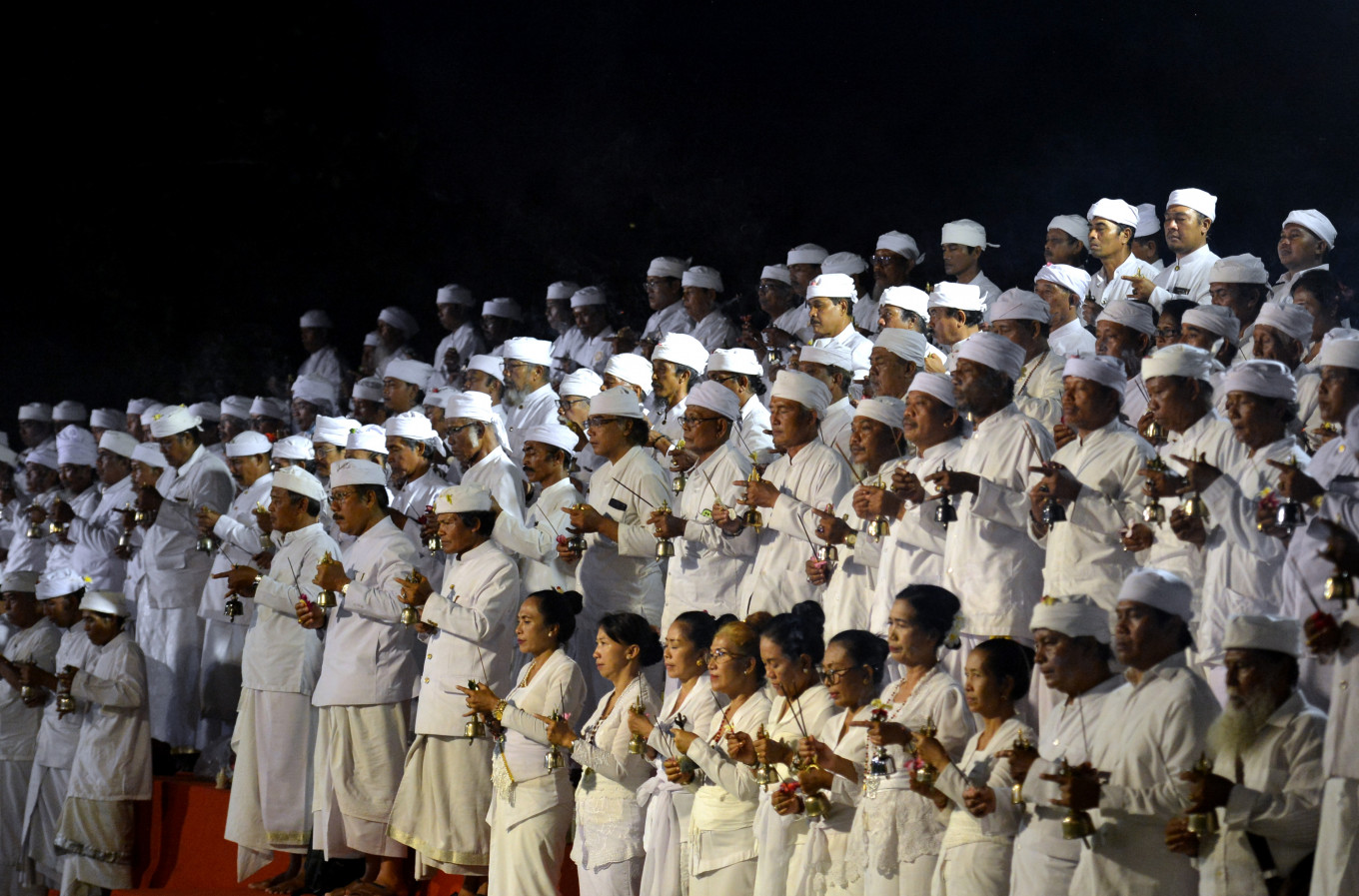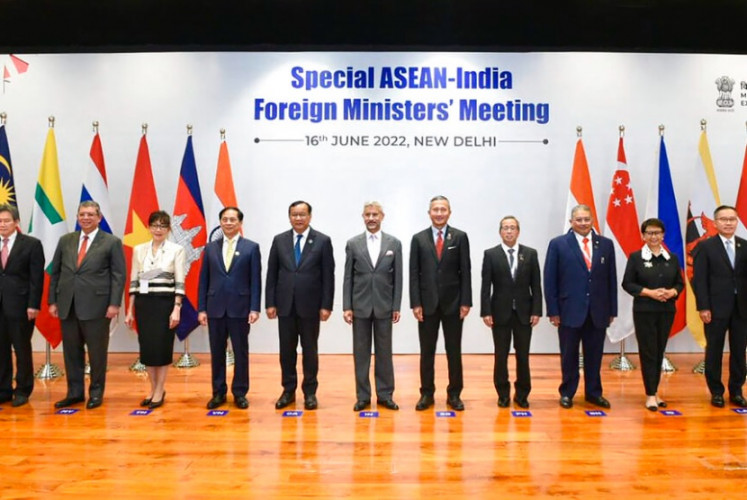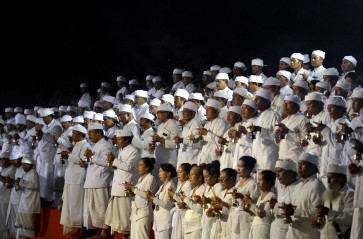Will R20 pave the way for religious diplomacy?
The 1945 Constitution mandates total diplomacy, which acknowledges the critical role of non-state actors, such as religious groups.
Change Size
 Hindu religious leaders participate in a mass prayer event on Wednesday, wishing for the success of the Group of 20 Summit slated for Nov. 15-16, in Nusa Dua, Bali. (Antara/Fikri Yusup)
Hindu religious leaders participate in a mass prayer event on Wednesday, wishing for the success of the Group of 20 Summit slated for Nov. 15-16, in Nusa Dua, Bali. (Antara/Fikri Yusup)

Bali will host the Religion of 20 (R20) forum on Wednesday and Thursday, ahead of the Group of 20 Summit about two weeks later. Nahdlatul Ulama (NU) chairman Yahya Cholil Staquf came up with the R20 concept to promote religion as an alternative solution to today's complicated global problems, including conflicts, climate change and economic injustice.
Considering these objectives, the R20 will not only enliven the G20 agenda but also bring new hope for global solutions and contribute to Indonesia’s diplomatic agenda.
Many have deemed religion a source of conflict and violence. The European Enlightenment also caused many to disregard religion's importance in public affairs.
But that phenomenon is changing. Attempts to create a healthy society without religion have failed.
Thomas G. Walsh (2012) has the courage to re-actualize Jurgen Habermas' "post-secular" proposition and introduce religion into the public arena. Walsh maintains that although religion is frequently cited as a contributor to conflict and violence, religion has also advanced the cause of peace in numerous profound and substantial ways, including its calls for nonviolence, restraint of acquisitiveness, forgiveness, reconciliation and the just war theory.
Walsh claims that the human desire for peace has its origins in religious principles that are universally held by the world's religions and that predate modern secular movements or ideologies.
Therefore, Walsh argues that religion's influence in problems of peace and security should be acknowledged for two reasons. First, it is more honest and scientific to recognize the influence of religion in international affairs. Second, by identifying and comprehending religion's function, one is in a better position to limit religion's detrimental impact while simultaneously fostering its positive potential.

















